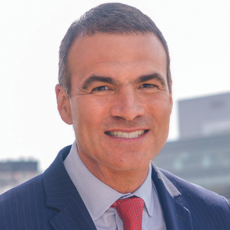What kind of gaps are clients struggling with the most at the moment in terms of the energy transition and regulation?
The regulatory framework right now is very nebulous because it is so driven by public policy makers at the state and local levels. This creates a maze of complexity for companies working across state lines and internationally to have to navigate. Our clients are looking for holistic regulations and certainty about how to address these issues responsibly. Public and, to some extent, private companies are only beginning to implement ESG frameworks. It will take some time for the effect of this to be quantified. Although we are at the very early stages of enacting ESG reporting requirements, there are many sophisticated energy players that are leaders in this effort.
Almost all sophisticated companies have these issues on their radar, and they are attempting proactively to do something about them. The success they have had varies. It is not easy to implement programs that change company culture from the bottom to the top. Market forces are beginning to incentivize companies to make these changes because it has become clear that robust ESG programs will become mandatory with quantifiable standards that need to be followed to the letter.
Which are the recurrent regulatory challenges that companies are stumbling upon and how are you helping them navigate these?
Many energy companies are at the forefront of strong ESG implementation and environmental compliance. One of their biggest challenges is that the regulatory framework is so different across states that it is difficult for them to adhere to national best practices that will apply to all their operations. In order to mitigate these issues, the federal government will have to get better involved with holistic legislation. Right now, local governments are the source of much of the regulatory framework, which results in companies having to chase their tails to standardize and obtain compliance.
If you could modify, remove or amend an existing regulation, which would it be and why?
I would finalize standards about ESG reporting at the SEC level. Even though the SEC is working at this, there is a lot of debate about what ESG reporting should entail and what is meaningful to the investing public. This work is far from done. I am an optimistic person. But when I consider the global legal framework, I have real concerns. While the citizens of this planet are all breathing the same air and drinking the same water, we have very different regulatory standards across the globe.
It is difficult to create standards that will help us solve clean energy problems in a cohesive way, world-wide. One of our key energy influencers is attacking Ukraine. We are at political odds with others. How can we create partnership about these issues in such a framework? We need a very divided political network to work in union for the greater good of the world and I am not seeing that as a possibility right now. Even within the US, we have extreme populations on both sides of the political isles in a tug of war about how to handle these issues that is resulting in a lack of meaningful legislative product.
How do you see yourselves moving forward into this new age working with clients but also internally hitting sustainability targets?
In many ways, the pandemic accelerated the hygiene of a more thoughtful approach to environment issues. We are now using zoom calls instead of face-to-face meetings that required plane rides. We have eliminated much of our paper usage by moving to electronic formats, by printing less frequently, and signing documents and closing deals online. Our firm is attempting to become carbon neutral too. Many of the public companies that we represent are starting to interrogate us about our own ESG frameworks, much in the way they did years ago about our cyber security.
Where does the greatest demand for ESG come from, in terms of industries and geographies?
The US and many of the Western European countries have been at the forefront of implementing best practices about ESG. However, some of the countries where there are significant mining operations, in Africa and Latin America, are a little more lax about these issues.

The fossil energy companies that have been wrongfully vilified by the marketplace are actually making efforts to implement strong ESG programs since it has become a corporate imperative for them. I believe they will be leaders in ESG in the next decade.
From a legal perspective, do you have a final message for our readership?
Now more than ever we need strong leadership that will not be deterred by the differences that seem to polarize us so dramatically to achieve thoughtful and practical standards. If we cannot get on the same page and reach resolution of these issues from a global view, we are going to have a very rough next 20 years. Please think about the legacy we are leaving our children and grandchildren. Their fate is in your hands.





